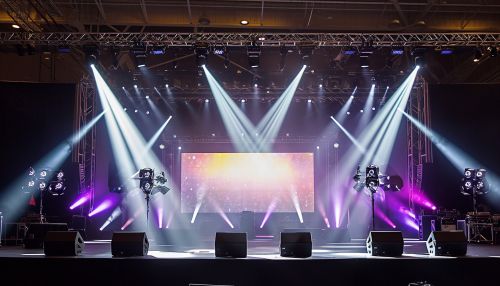Voting at the Eurovision Song Contest
Overview
The Eurovision Song Contest is an annual international song competition, held primarily among the member countries of the European Broadcasting Union. Since its inception in 1956, the contest has been one of the longest-running television shows in the world. The voting system used in the contest has changed over the years, with the current system being a combination of professional juries and televoting.


History of Voting Systems
The voting system of the Eurovision Song Contest has undergone several changes since the contest's inception. Initially, each country had a jury made up of ten members who each had to select their favourite song. The song with the most votes from the jury members would be awarded the highest points. However, this system was criticized for being susceptible to political and geographical bias, leading to changes in the voting system over the years.
In 1975, a new voting system was introduced where each country's jury awarded points to their top ten songs, with 12 points being awarded to their favourite song, 10 points to their second favourite, and so on down to 1 point for their tenth favourite. This system aimed to ensure a more equitable distribution of points and reduce the impact of political and geographical bias.
In 1997, televoting was introduced as an experiment in five countries: Austria, Germany, Sweden, Switzerland and the United Kingdom. This allowed viewers to vote for their favourite songs via telephone. The experiment was deemed successful and was subsequently rolled out to all participating countries. However, concerns were raised about the potential for diaspora voting and block voting, leading to further changes in the voting system.
In 2016, a significant change was made to the voting system. The professional juries and televoting audiences would now each award a separate set of points, potentially leading to a more diverse range of songs receiving points. This system has been in place since then, with minor adjustments being made as necessary.
Current Voting System
The current voting system of the Eurovision Song Contest involves both professional juries and televoting audiences. Each participating country has a jury consisting of five music industry professionals who are citizens of that country. They rank all the songs, excluding the song from their own country, and award points from 1 to 8, 10 and 12 to their top ten songs.
In addition to the jury vote, televoting audiences from each country also award points from 1 to 8, 10 and 12 to their top ten songs. The televoting results are then combined with the jury results to determine the overall points for each song.
The song with the highest total points is declared the winner. In the event of a tie, the song that has received points from the most countries is declared the winner. If there is still a tie, the song that has received the most 12-point scores is declared the winner. If there is still a tie, the song that has received the most 10-point scores is declared the winner, and so on until a winner is found.
Criticisms and Controversies
The voting system of the Eurovision Song Contest has been subject to criticism and controversy over the years. One common criticism is that the system is susceptible to political and geographical bias, with countries often awarding points to neighbouring countries or countries with which they have close political ties.
Another criticism is the potential for diaspora voting in the televoting system. This occurs when residents of a country vote for a song from their country of origin, potentially skewing the results.
The use of professional juries has also been criticized, with some arguing that it reduces the influence of the viewing public and can lead to a disconnect between the jury results and the televoting results.
Despite these criticisms, the Eurovision Song Contest continues to be a popular event, with millions of viewers tuning in each year to watch the performances and vote for their favourite songs.
